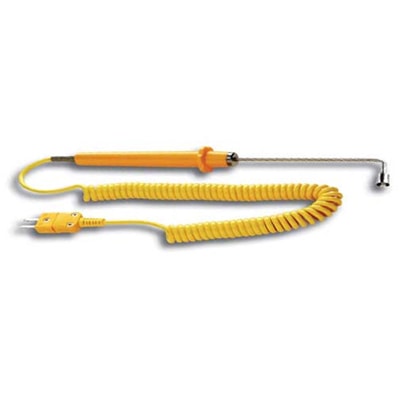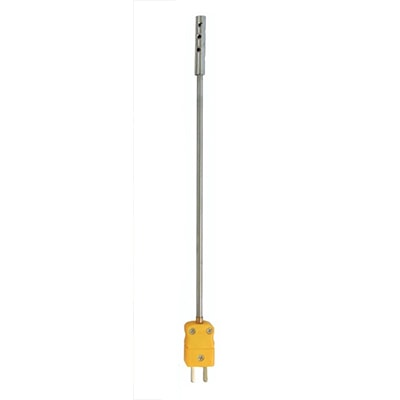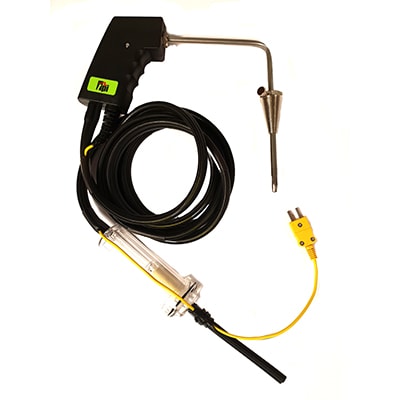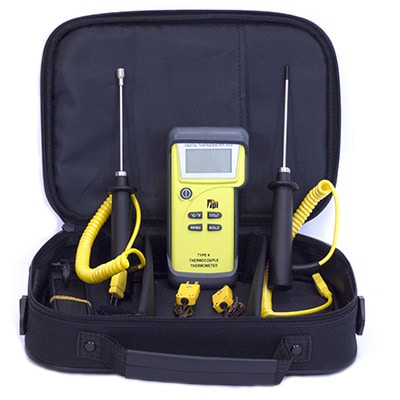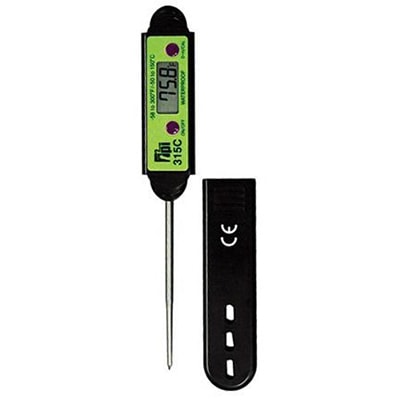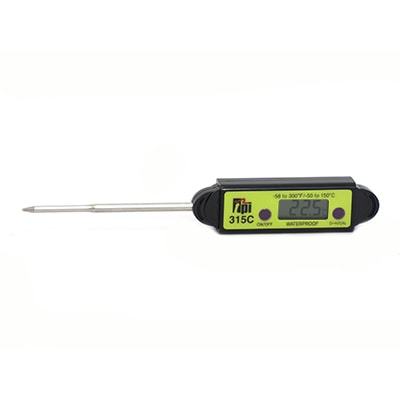CK12M Contact Surface Temperature Probe
£29.50
Contact surface probe, water proof. Application: Contact temperatures on flat and uneven surfaces.
In stock
Description
Contact surface probe, water proof. Application: Contact temperatures on flat and uneven surfaces.
Specifications
| CK12M Specifications | ||
|---|---|---|
| Stem Length | 4″ (102mm) w/90° bend | |
| Diameter | 0.3″ (7.5mm) | |
| Lead Length | 39.4″ (1M) | |
| Temp. Range | -58° to 500° F (-50° to 250° C) | |
| Insulation Material | Polyurethane | |
FAQs
Frequently Asked Questions
What is the difference between thermocouple and thermistor probes?
Thermocouple probes utilize the reaction between two dissimilar metals to produce a voltage that changes as temperature changes. A thermistor is a resistive with a change in temperature. In general, thermocouples offer aider temperature range and quicker response time than thermistors. Thermistors are typically more accurate than thermocouples.
What are the differences between thermocouple types? Each thermocouple uses different metals and therefore have different characteristics. Here are general guidelines: K-Type- Wide temperature range used in many digital thermometers. Identified by a yellow connector. T-Type- Narrower temperature range than J-type but more accurate than K and J types, used in digital thermometers. Identified by a blue connector. J-Type- Narrower temperature range the K-type used in analog and digital thermometers. Identified by a black connector.
Can different thermocouple types be interchanged? No. Since each thermocouple type uses different metals in it’s construction they have different output characteristics. Using a J-type thermocouple in a K-type thermometer will cause measurements to be very inaccurate.
What are the differences between the connector types TPI offers?
Sub-Mini: This is an industry standard connector type allowing TPI probes to be used in any thermocouple thermometer using this type of connector. Sub-mini connectors are quick and easy to use, simply push in and out. A wide variety of economical probes are available with sub-mini connectors, enhancing versatility and affordability of the temperature tester.
Lumberg: This connector uses a screw collar to attach to the thermometer and is the most secure connection available. Lumberg connectors are designed for the rigors of food processing environments. Advantages include:
- Strong connection – stainless steel collar holds and protects connection. Probe will not pull out of instrument with out unscrewing the collar.
- Waterproof stainless steel will not rust and is ideal for wet, humid conditions
- Lumberg connectors are manufactured following ISO9000 quality control guidelines.
Bi-Polar: This connector is used in the TPI thermistor probe line.
What type of probe should I use?
The type of probe you use depends upon your application. Here are some general guidelines for different types of probes.
- Penetration (F): General purpose probe used for penetration and immersion; can be used for air, but is much slower than an air probe. Need to select the tip type that best suits the application.
- Contact (C): Contact probes are used to measure surface temperatures. Penetration probes, with the exception of the chisel tip, can’t measure surface temperatures. Need to select the tip type that best suits the application
- Air (G): Air probes measure the air or gas temperatures. They respond significantly faster than penetration or contact probes in air. Need to select the tip type that best suits the application.

